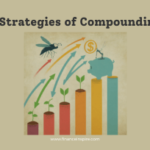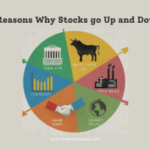1. 10 different types of investment products – Stocks
Stocks, also known as equities, represent ownership shares in a publicly-traded company. When you buy stocks, you become a shareholder and have a claim on a portion of the company’s assets and profits. Stocks offer the potential for capital appreciation and dividend income, but they also carry a higher level of risk compared to some other investment products.
2. 10 different types of investment products – Bonds
Bonds are debt instruments issued by governments, municipalities, or corporations to raise capital. When you invest in bonds, you essentially lend money to the issuer, and in return, they agree to pay you periodic interest payments (coupons) and return your principal amount at the bond’s maturity date. Bonds are generally considered lower-risk investments than stocks, but they also offer lower potential returns.
3. 10 different types of investment products – Mutual Funds
Mutual funds are investment vehicles that pool money from numerous investors and invest in a diversified portfolio of stocks, bonds, or other securities. Mutual funds are managed by professional fund managers and offer investors instant diversification and the potential for higher returns through active management. However, they typically come with higher fees and expenses compared to other investment products.
4. 10 different types of investment products – Exchange-Traded Funds (ETFs)
Exchange-traded funds (ETFs) are similar to mutual funds in that they provide diversified exposure to a basket of securities. However, ETFs are traded on stock exchanges like individual stocks, and their prices fluctuate throughout the trading day. ETFs can track various indices, sectors, or asset classes, and they generally have lower fees than actively managed mutual funds.
5. 10 different types of investment products – Real Estate Investment Trusts (REITs)
Real Estate Investment Trusts (REITs) are companies that own and operate income-generating real estate properties, such as apartment complexes, shopping malls, or office buildings. REITs allow investors to gain exposure to the real estate market without the hassle of directly owning and managing properties. REITs offer the potential for capital appreciation, dividend income, and diversification benefits.
6. 10 different types of investment products – Commodities
Commodities are physical goods or raw materials, such as gold, oil, or agricultural products. Investors can gain exposure to commodities through futures contracts, commodity ETFs, or by investing in companies that produce or trade commodities. Commodities can serve as a hedge against inflation and provide diversification benefits, but they can also be volatile and subject to supply and demand dynamics.
7. 10 different types of investment products – Certificates of Deposit (CDs)
Certificates of Deposit (CDs) are low-risk, fixed-income investment products offered by banks and credit unions. When you purchase a CD, you agree to lend your money to the financial institution for a predetermined period, typically ranging from a few months to several years. In exchange, the institution pays you a fixed interest rate over the CD’s term. CDs are FDIC-insured (up to certain limits), making them a relatively safe investment option.
8. 10 different types of investment products – Annuities
Annuities are long-term investment contracts issued by insurance companies. They can provide a stream of income payments, either immediately or at a future date, and are often used as a retirement income strategy. There are different types of annuities, including fixed annuities (which offer a guaranteed rate of return) and variable annuities (whose returns are tied to the performance of underlying investments).
9. 10 different types of investment products – Cryptocurrencies
Cryptocurrencies, such as Bitcoin and Ethereum, are digital or virtual currencies that use cryptography for secure financial transactions. While cryptocurrencies are not traditional investment products, they have gained popularity as speculative investments, with the potential for significant price appreciation or depreciation. However, cryptocurrencies are highly volatile and largely unregulated, making them a high-risk investment option.
10. 10 different types of investment products – Alternative Investments
Alternative investments encompass a broad range of assets that do not fall into the traditional categories of stocks, bonds, or cash. Examples include hedge funds, private equity, venture capital, real estate, and collectibles (such as art, wine, or classic cars). Alternative investments are often used for diversification purposes and may offer potential for higher returns, but they also tend to be more complex, less liquid, and carry higher risks.
When choosing investment products, it’s essential to consider your investment objectives, risk tolerance, time horizon, and overall financial situation. Diversification across different asset classes and investment products can help mitigate risk and potentially enhance overall returns.
It’s also crucial to thoroughly research and understand the risks, fees, and tax implications associated with each investment product before committing your capital. Working with a qualified financial advisor can be beneficial in navigating the complex world of investment products and developing a well-rounded investment strategy that aligns with your goals.
Remember, no single investment product is inherently superior or inferior – the key is to construct a diversified portfolio that suits your unique circumstances and financial plan. By exploring the various types of investment products and their unique characteristics, you can make informed decisions and increase your chances of achieving long-term financial success.










